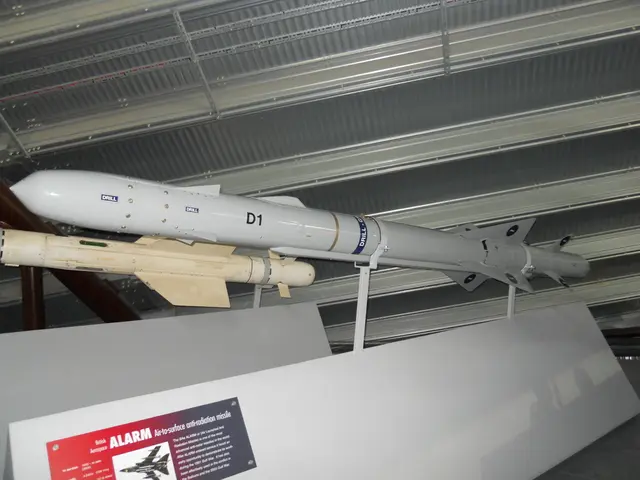Information technology (IT) forms the future for industrial titan General Electric (GE).
GE, a global industrial giant, is embarking on a significant digital transformation journey, as announced at the Minds and Machines conference in Silicon Valley. The company's CEO, Jeffrey Immelt, emphasized the need for industrial companies to embrace software and analytics to avoid being left behind.
Last year, GE revealed plans to decrease its reliance on IT outsourcing, with 50% of the IT work being done by non-GE employees. CIO Cherlene Begley acknowledged that the strategy of outsourcing IT work may have had its time, citing significant downsides, including the loss of technical capabilities that GE needed to analyze.
In a move to strengthen its in-house capabilities, GE announced plans to invest heavily in software, analytics, and communications technologies. This investment forms part of a $1 billion plan for the 'Industrial Internet,' GE's application of machine-to-machine (M2M) communications and analytics to industrial systems.
GE is not only investing in its own capabilities but also collaborating with other companies to enhance its offerings. The company announced joint ventures with Baker Hughes and Accenture to analyze sensor data from GE's machines, providing customers with real-time performance and maintenance information.
Moreover, GE is looking to the future by investing up to $100 million in start-ups for early access to IT-related innovations. The centre's leader, a former executive from Cisco, will oversee these efforts at the newly opened research and development centre in San Ramon, near San Francisco. The staffing at this centre may grow to 1,000.
The digital transformation of GE is not just about improving its own operations. The company believes that the combination of the global industrial system and open computing and communication systems could lead to increased productivity, reduced inefficiency, and enhanced human work experience across various industries.
According to a report, the aviation, power, healthcare, rail, and oil and gas industries could save a combined $270 billion over the next 15 years by improving efficiency by just 1%. This underscores the potential benefits of GE's digital transformation strategy.
Jeffrey Immelt also expressed that the grid has significant opportunities for the application of software and analytics. However, he cautioned that the industry must approach this transformation with care, recognising the potential for software to disrupt many areas of industry, including the power and electricity distribution grid, as reported by Reuters.
As GE embarks on this digital transformation journey, it is clear that the company is committed to leveraging technology to improve the performance of its industrial and electrical equipment, drive efficiency, and create new opportunities for growth.
Read also:
- Rachel Reeves conducts a discussion with Scott Bessent and financial executives, focusing on investment matters
- Strategic approach to eco-friendly nickel production for electric vehicles in Europe
- Week 39/24 Highlights: Tesla CEO's visit, Robo-taxi buzz, Full Self-Driving study, Affordable electric cars, and European pricing less than €30,000
- Solar energy company, Imperium, alongside QORAY Mobility & Energies Solar Business, bolsters Nigeria's environmental future by producing superior solar panels domestically and offering flexible payment options.








